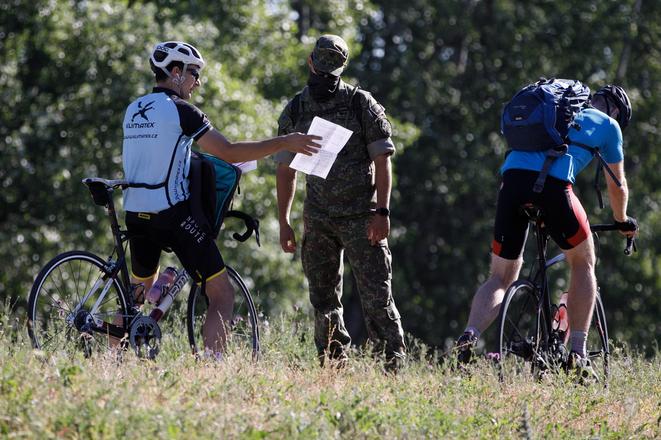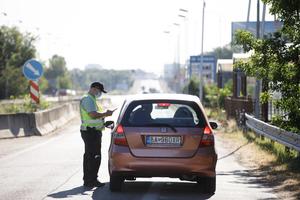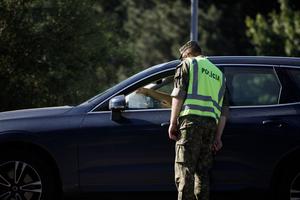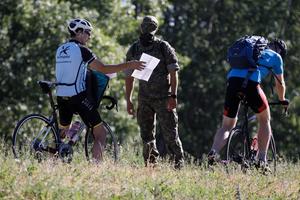As of July 5, people arriving in Slovakia may encounter intense border controls focused on ensuring people are following all anti-pandemic measures. Cargo transport is exempt from these controls.
Our paywall policy
The Slovak Spectator has decided to make all the articles on the special measures, statistics and basic information about the coronavirus available to everyone. If you appreciate our work and would like to support good journalism, please buy our subscription. We believe this is an issue where accurate and fact-based information is important for people to cope.
Police noted that some trains may be controlled at train stations, too. Other small border crossings are closed because Slovakia is in the second phase within the border alert system.
“In order to ensure the flow of traffic, we ask citizens to prepare all the necessary documents, confirmations or mobile devices with digital forms of confirmation before arriving at the inspection posts,” the police announced on Facebook. They also added that they are ready to control digital Covid EU passes via mobile scanning devices.
The Health Ministry said that it is possible to register on korona.gov.sk/ehranica (which is obligatory) up to 30 days before arriving in Slovakia.
The spokesperson for the ministry Zuzana Eliášová explained that everyone is obliged to register in the app and then show the electronic or printed version of their registration at the borders when returning.
“The possibility to fill in the eHranica form up to 30 days before returning to Slovakia makes it possible to carry out mandatory registration before traveling abroad, for example on holiday,” she said, as quoted by the TASR newswire. “At the same time, this creates space for passengers who do not have a smartphone or another mobile device to register in the comfort of their home before departure and print out the registration confirmation before leaving Slovakia. It enables their relatives to help them with registration too.”
To ensure effective control of open border crossings, the police closed some smaller ones:
Austria
Bratislava (Kopčianska Street) - Kittsee.
Hungary
Veľký Kamenec - Pácin,
Slovenské Nové Mesto - Sátoraljaújhely,
Skároš - Holloháza,
Domica - Aggtelek,
Tachty - Cered,
Kalonda - Ipolytarnóc.
Poland
Palota - Radoszyce,
Nižná Polianka - Ožena,
Becherov - Konieczna,
Kurov - Muszynka,
Čirč - Leluchów,
Lysá nad Dunajcom - Niedzica,
Tatranská Javorina - Lysa Poľana,
Suchá Hora - Chocholów,
Bobrov - Winiarczykówka,
Novoť - Ujsoly.
Czech Republic
Čadca - Milošová - Šance,
Červený Kameň - Nedašova Lhota,
Horné Srnie - Brumov - Bylnice,
Nová Bošáca - Březová,
Moravské Lieskové - Strání,
Vrbovce - Velká nad Veličkou,
Skalica - Sudoměřice,
Brodské - Lanžhot,
Road crossings Kohútka, Drietoma - Liešna, Stará Myjava, Kykula, Predpoloma Javorina.


 Checks at Petržalka-Berg (source: SITA)
Checks at Petržalka-Berg (source: SITA)


